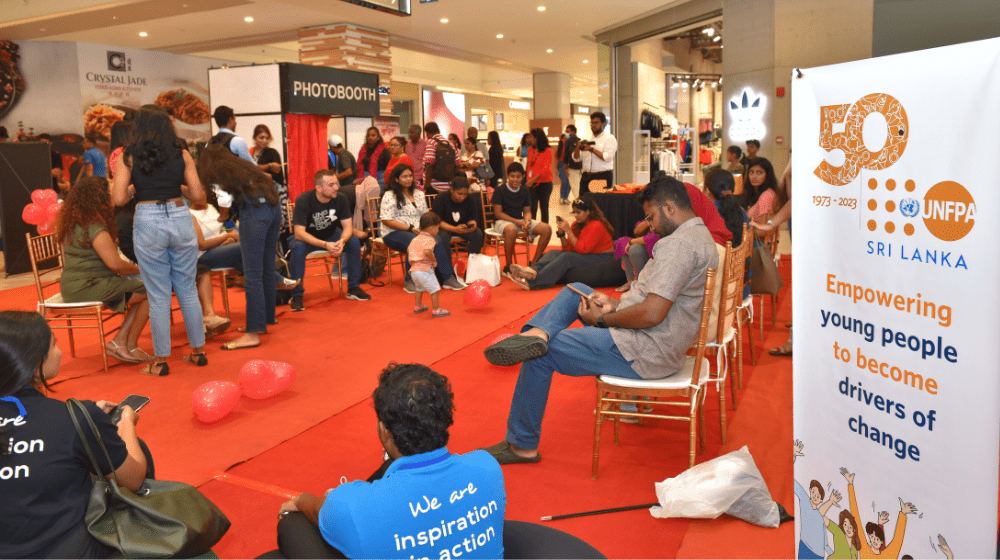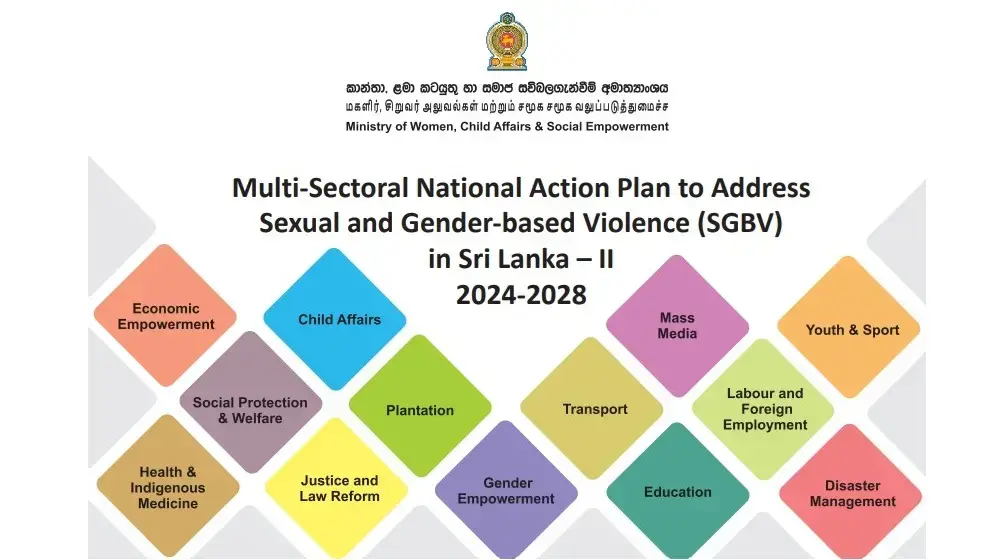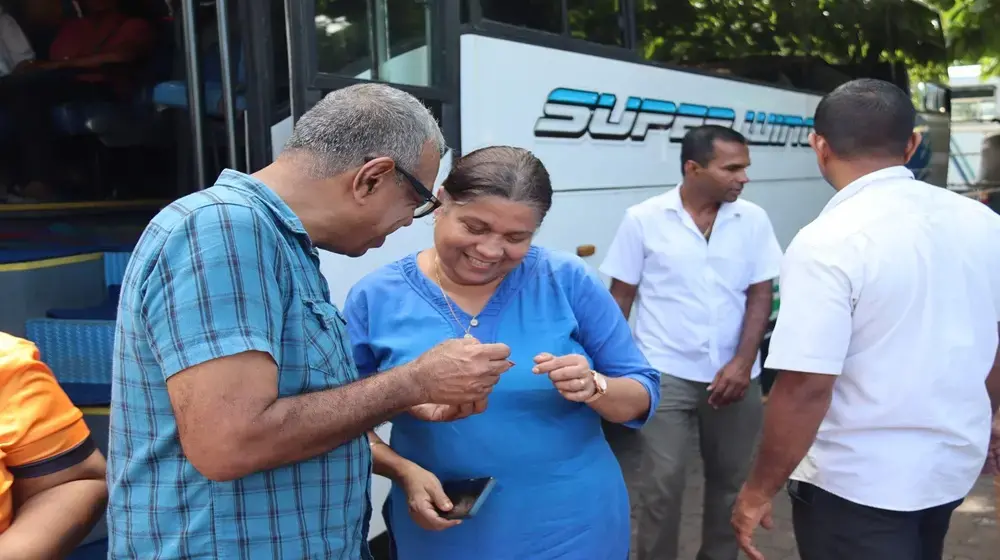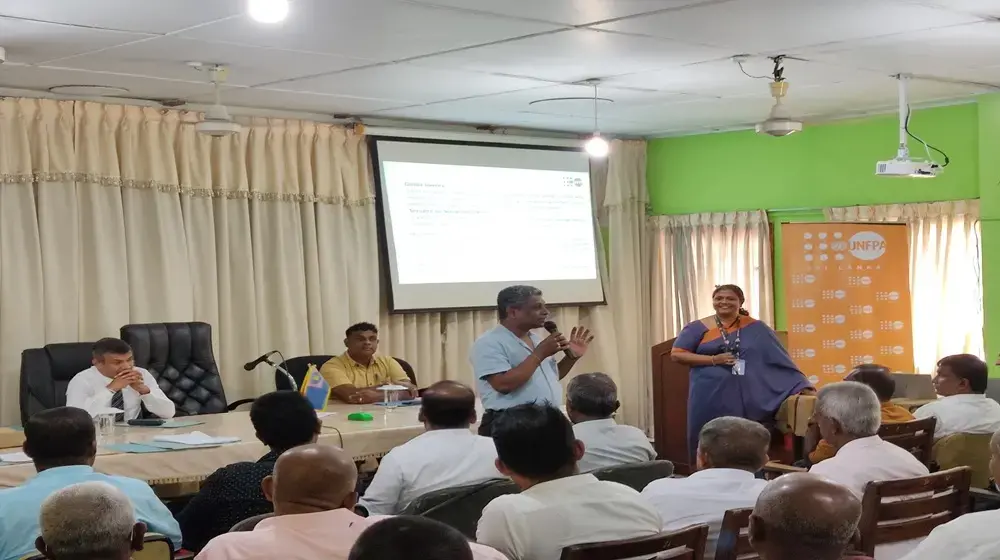On Valentines Day, UNFPA with social impact creators hosted a fun event at One Galle Face Mall with young people to explore their thoughts & knowledge on sexual & reproductive health and rights and talk about respectful relationships, culture and gender roles. The aim of this event was, 1. To address myths and misconceptions around SRH among young people providing them with accurate information and referrals on SRH and GBV; 2. To raise awareness among young people on a key UNFPA thematic area; 3. To create visibility for UNFPA’s mandate and engage young people and youth influencers/contact creators to share SRH messages. The event saw social impact creators engage in discussions and share their experiences and views on sexual and reproductive health, consensual and healthy relationships among many other topics.
23% of Sri Lanka’s population consists of young people. 1 in 4 people in Sri Lanka are between the ages of 15 to 29 – a total of 4.7 million in 2014 and in the next 15 years, 5.5 million more Sri Lankans will be under the age of 15 years. However, Sri Lanka is currently also experiencing significant demographic change in terms of population ageing as the proportion of the population aged 60 years and above, has increased from 6.6% to 12.4% between 1981 and 2012. The changes in the population age structure creates many challenges as well as opportunities that have profound effects on social, economic and environmental development.
Out of 20 million inhabitants, 14.9% is made up of youth. 50% of young people are not aware of their sexual and reproductive health and 665 of girls are not aware of menarche until their first menstruation. The HIV infection rates among young people aged 15- 24 has increased in the past two years which has been a concern in both the health and education systems. Lack of knowledge on SRH and myths and misconceptions lead to poor sexual and reproductive health, menstrual health and impact on their mental health and wellbeing. With the country going through an economic and political crisis, understanding the unique challenges and needs of young people is essential to ensure that no one is left behind. The lack of access to services and accurate information makes young persons more vulnerable to violence and sexual abuse as well. This further prevents these young people from accessing equal opportunities and fulfilling their full potential and could be life threatening.





